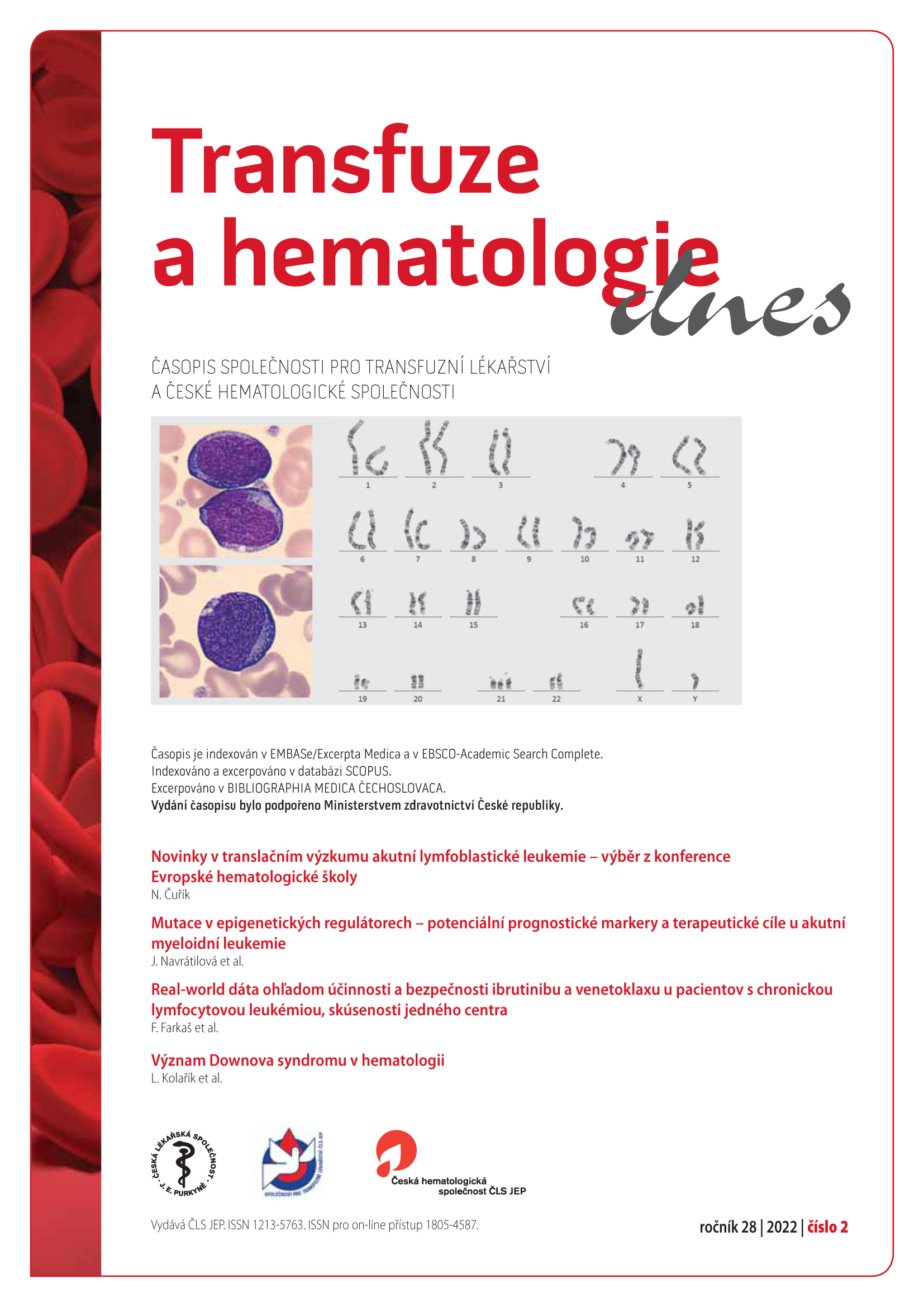Mutace v epigenetických regulátorech: potenciální prognostické markery a terapeutické cíle u akutní myeloidní leukémie
Epigenetika u AML
Keywords:
akutní myeloidní leukémie, epigenetické změny, epigenetické regulátory, prognózaAbstract
Regulation of gene expression, especially in hematopoietic stem cells, plays an essential role in differentiation and other important proceses in hematopoiesis. Pathogenesis of different malignant diseases is characterised by the hit in epigenetic regulation. Certain somatic mutations, including genes like DNMT3A, TET2, IDH1, IDH2, ASXL1, MLL or EZH2, have been found in acute myeloid leukaemias, especially in patients with normal karyotype AML. These mutations are considered as a preleukemic events and they are stable pointer of clinical progress. In combination with driver mutations, they are a suitable markers for monitoring minimal residual disease. Specific mutational profile of each patient can bring essential information about disease progression, relapse or achievement of the complete remission. The aim of this article is to review the knowledge about clinical and therapeutical value of the mutations in selected genes involved in epigenetic regulation of gene expression in acute myeloid leukaemias.


